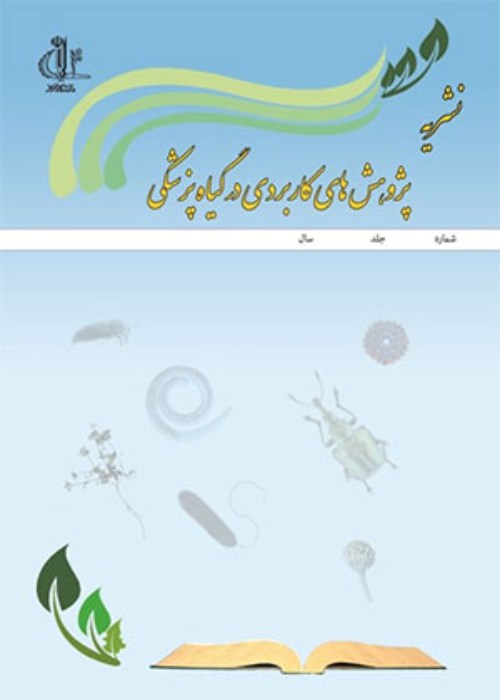Occurrence of the TTKSK (Ug99) race of Puccinia graminis f. sp. tritici in northwest of Iran (Hashtrood region)
Stem or black rust caused by Puccinia graminis f. sp. tritici (Pgt) is one of the most important fungal diseases of wheat in the world. So far, several physiological races of Pgt (more than 200 races with different pattern of pathogenicity) have been identified worldwide. One of the most virulent recognized stem rust races is the race TTKSK (Ug99) that was first observed in Uganda in 1998. Gene Sr31 had created resistance to stem rust on wheat in more than 40 years to the point where it was imagined eradicating this disease (Pretorius et al. 2000). The Ug99 race was reported from Kenya in 2002, Ethiopia in 2003, and Yemen in 2006. There has been evidence for the arrival of this race in Iran since 2001, but official report of this race was delayed until 2007, probably due to unfavorable environmental conditions for establishment and spread of the disease (Nazari et al. 2009). The hypothetical route of movement and migration of this race is from the African continent to Central Asia and the Indian subcontinent through Iran. In Iran, the race TTKSK (Ug99) was reported for the first time from Borujerd and Hamedan in 2007, then observed in Ahwaz and Azadgan plain of Khuzestan in 2009, again observed from Borujerd in 2011 and Kelardasht of Mazandaran province in 2013 (Patpour 2013). In the year 2016 infected leaf and stem samples of the wheat stem rust disease were collected from different areas of country and after transferring to the greenhouse of the rusts of Seed and Plant Improvement Institute, Karaj, three isolates were single-pustule and proliferated. Following single-pustulating of isolates, employing the Jin et al. (2008) method, stem rust races were determined using a set of 20 North American differential genotypes. The infection type of differential genotypes was recorded 14 days after the inoculation; based on a modified scale of 0-4 McIntosh et al. (1995). According to the results, isolate of Pgt that was collected from the Hashtrood area of the East Azarbaijan province was identified as TTKSK (Ug99). In addition, along with international differential genotypes, the commercial cultivars of Shiroudi, Falat and MV17, having the Sr31 gene in their background, was used (Patpour 2013). Regarding the emergence of high-infection type on differential genotypes and commercial cultivars, the isolate from the Hashtrood region was confirmed as race TTKSK (Ug99) (Fig. 1). Since stem rust has not been a serious disease on wheat in the cold climate of the country, according to studies, resistant cultivars to wheat stem rust in cold climates are limited (Patpour 2013). Proper management strategies for the control Ug99 race and its variants are urgently required to avoid possible epidemics and economic crop losses under favorable environmental conditions, and consequent spread of this disease in the country which could lead to reduced food security in Iran and the countries on the migration route of the race. According to the Food and Agriculture Organization (FAO), if the Ug99 race and its variants remain controlled, global production of wheat will be directly reduced by up to 37% (Anonymous 2014).
- حق عضویت دریافتی صرف حمایت از نشریات عضو و نگهداری، تکمیل و توسعه مگیران میشود.
- پرداخت حق اشتراک و دانلود مقالات اجازه بازنشر آن در سایر رسانههای چاپی و دیجیتال را به کاربر نمیدهد.



